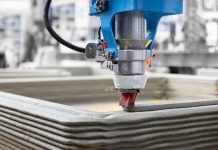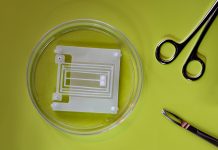Ali Akhtar, Head of Acquisitions, at BT Wholesale, explains how strong local authority partnerships are central to unlocking small cell connectivity
In today’s technological age, connectivity has become indispensable. Whether individuals use mobile phones to connect to an app, talk to friends and family, or governmental bodies monitor environmental metrics such as air quality, the demand for technology and connectivity has never been greater.
Local authorities are central to this evolving landscape that provides the vital link between the telecoms industry, the communities they serve, and the infrastructure critical for facilitating connectivity – such as street furniture and buildings. In essence, they assist in paving the way towards new technological advancements that meet local needs (e.g. using 5G to improve the way services are delivered) – and a simple and effective way to achieve this is through small cell technology.
Coverage, capacity, communities
Small cells are low-powered mobile radio access nodes that help to provide greater network performance in densely populated areas with increased data traffic. They are deployed to support larger (macro) mobile masts or where an ‘offloading’ capability is required. BT Wholesale is the largest provider of this technology in the UK and, with its partners, has been at the forefront of developing better deployment procedures to ensure UK Public Limited Companies’ (PLC) aspirations around 5G are realised.
And there are numerous examples of councils already benefiting from this technology. For example, BT Wholesale has partnered with Leeds City Council and the London Boroughs of Croydon and Southwark, who are all early adopters of ‘non-exclusive’ small cell licence agreements that have enabled BT Wholesale (and industry in general) to roll out small cells at scale. In turn, these partnerships have elevated connectivity to become a key driver for economic development, while supporting changes in behaviours, such as hybrid working.
The Government are on board with making this digital vision a reality too, with the Digital Connectivity Infrastructure Accelerator (DCIA) and the more recent 5G Innovation Regions. This provides councils and technology providers with access to over £40 million of funding to develop tomorrow’s wireless communication networks, with a specific focus on exploring how public assets (publicly owned buildings and street furniture) can be used to support the development and deployment of mobile communications and small cells.
This should be celebrated, as small cells drive development across regions. By boosting connectivity, they foster inward investment by attracting new businesses to an area, increasing employment opportunities for residents, and encouraging the retention of business rates for local authorities.
Moreover, small cells facilitate new and adaptable service models that promote efficiencies and better outcomes, such as supporting lone workers and vulnerable (sometimes hard-to-reach) residents in staying connected and safe. This universal access fosters a greener, more inclusive, and productive environment, empowering individuals to connect from any location. Ultimately, small cells offer a unique way to elevate local communities, driving them towards enhanced connectivity and prosperity.
Threading the legal needle
While the benefits of adopting this technology are clear, the process of quick and cost-effective deployment can often resemble threading a needle for both local authorities and operators. Mass deployment has previously been impeded by the intricate nature of regulatory processes, bureaucratic hurdles, expensive concession models, and inconsistent practices.
However, it’s now much easier for councils, operators, and infrastructure providers to agree on delivery protocols and terms, and stitch together a successful approach. For example, the updated Electronic Communications Code (2017) curtailed councils’ reliance on concession contracts as a way to enable small cell deployments in a local area. Instead, establishing non-exclusive Open Access agreements now offers industry and local authorities a simpler way of working.
Councils such as Manchester, Liverpool, and Glasgow have already adopted this approach. It means that assets are not overvalued, and the community can benefit regardless of what network they are on, improving digital inclusion and economic growth.
BT Wholesale has been at the forefront of driving the development of small cell technology and delivery across the UK. We have bilateral agreements and strong relationships with local authorities. We work closely with council services, such as street lighting engineers, to ensure knowledge around our deployment protocols is understood and approved.
Recognising that councils face resource constraints and securing initial agreement is complex, we are committed to simplifying deployment, ensuring it’s seamless, straightforward, and economical for all stakeholders.
Sowing the seeds for a connected future
Although the process may be tricky to navigate, local authorities increasingly embrace small cells. However, to truly connect for good, key stakeholders need to communicate more about their needs and realistic next steps. For instance, as we transition towards 5G ‘standalone’, which holds the potential to unlock new Internet of Things (IoT) capabilities and services for local authorities, businesses, and households, there’s a need for deeper understanding and cooperation.
The 2017 ‘code’ does not provide a one-size-fits-all solution for the industry either – which may mean we need to look at legislation again. For example, agreeing on processes and timeframes pertinent to small cell deployments that work for both the industry and the asset owner and guiding Private Finance Initiative (PFI) contracts.
The industry is going in the right direction but needs to accelerate efforts to swiftly unlock the full benefits of 5G and establish a comprehensive framework around small cells.
BT Wholesale plays a vital role in this; think of us as gardeners bringing the right elements together for growth and sowing the seeds for a brighter and connected future.
Contributor Details
More About Stakeholder
-
BT Wholesale – telecoms service provider
BT Wholesale is the largest deployer of street level small cells in the UK, working in partnership with MNOs and local authorities.
Editor's Recommended Articles
-
Must Read >> Digital infrastructure to connect all communities
















